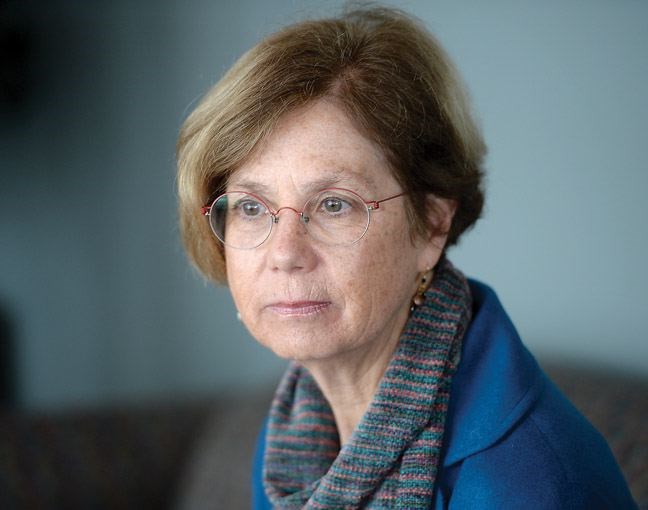Countries will need to double their commitments to reduce emissions if they hope to meet the target set out at last month's Paris climate conference to limit global warming well below two degrees Celsius.
"We're not there yet. We're not even halfway there," said climate change scientist Sybil Seitzinger, who attended the conference as Victoria-based Pacific Institute for Climate Solutions' new executive director.
With the new agreement, set to take effect in 2020, Seitzinger estimated it would lead to a 3 C increase above pre-industrial levels.
"There's a huge amount of additional work to be done in terms of upping the commitments of countries as we go forward, including Canada's, so that we can stay below two degrees."
Even as Seitzinger made that stark assessment, she said the Paris talks presented an overwhelmingly positive shift in how countries approached climate change.
"There was a great deal of enthusiasm. There was a lot of preparation for COP21, countries coming forward with their targets for emissions."
Real. Visible. Tangible.
Seitzinger used those three words to explain the agreement to an audience last week at the University of Northern B.C.
Before the presentation, she said despite past failures to meet reduction targets, there was reason to hope.
"One of the reasons to be optimistic I think is not only that all countries are now committed to be reducing their emissions, but now also the major emitters - such as China - are on board with this and making big investments in renewable energy sources as they continue to develop," she said, citing India's investments in solar energy too.
"It's going to be tough for every country to meet their commitments. There's an urgency for change to happen soon."
Change will take time, she said, because countries have invested for so many years in fossil fuels.
"It's not going to be overnight that we're going to change that whole energy system," she said.
"I think we have to not only be aggressive in it, but we also have to be patient. And we also have to think of people's livelihoods and how to help support people making that transitions, how to help businesses and communities that rely on fossil fuel."
Coming to Canada
Seitzinger, an American, is new to B.C. and Canada after seven years of leading the International Geosphere-Biosphere Program based in Stockholm, Sweden.
It was her first visit to Prince George and UNBC, which is one of four universities that make up the Pacific Institute for Climate Solutions (PICS).
"It's a great next step in my career," she said. "Coming to something that's more tangible where we can really look at solutions, hopefully have some impact on those solutions being taken up by business, by government, by the private sector."
B.C., she said, is one of the best places to pursue innovative work.
"B.C. has history in the outside world of being known to be a very proactive province in terms of climate and climate action," she said.
"It's also is a place that there's awareness in climate change and I think a lot of agreement that we need to do something about it and already action at many different levels."
PICS is pursuing five major projects areas to address climate change: transportation futures; carbon management in forests; determining if natural gas is a transition fuel; looking at built environments; and grid integration electricity, or seeing if B.C. can partner with neighbouring provinces to integrate the electricity grid too reduce Alberta and Saskatchewan's reliance on fossil fuels.
B.C. is ahead of the game, in many ways, because of its access to hydro power.
"We are in a great advantage there already... not relying heavily on fossil fuels for our electricity."
Seitzinger also sees a huge opportunity in forestry.
"Forestry is very positive if it's managed well for climate change," she said.
"It not only provides jobs, but it also is a renewable resource and in addition it's a mechanism for carbon storage."
A shift in perspectives
Seitzinger was at the last climate change conference in Copenhagen in 2009.
She noticed a marked difference in the atmosphere, preparation and commitments.
"Going into Copenhagen there was a great deal of skepticism. I think countries weren't entirely on board with climate change yet, and realizing the urgency in action. There was also a very different social dynamic in Copenhagen with the way the negotiations were handled.
"There was a very different feeling."
Canada, too, was very different. She described the country as a leader when it had been in the past a "naysayer."
"Canada is standing up and really being forward looking, being on board with some of the key issues."
In particular, Seitzinger praised Environment Minister Catherine McKenna for pushing a 1.5C increase in global average temperature rather than 2C.
"Canada, I think, showed very important leadership there."
Another key difference, was bringing in systems of review which will create more transparency, she said.
"There's going to be an early evaluation of how countries are doing and regular checks after that."
Her hope is that these checks will prompt countries to make more ambitious targets throughout the lifetime of the agreement.
"That's critical because we're not even half way in terms of reductions that we need to be to stay below the two degree target."



